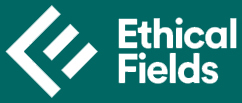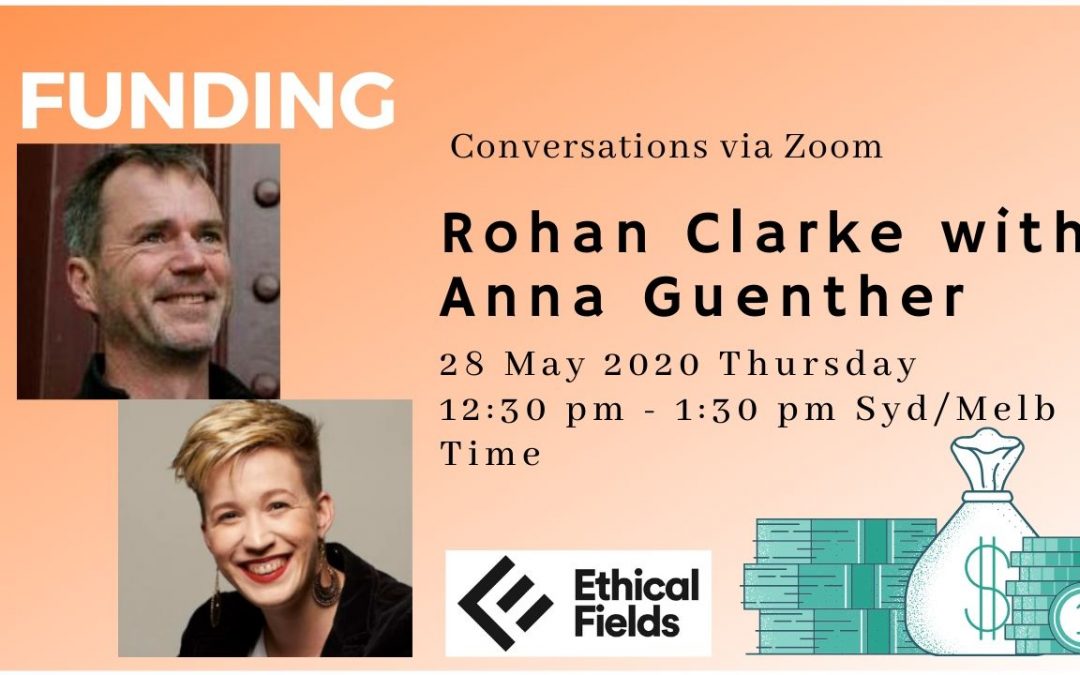For our first interview in the Ethical Fields co-design of funding for communities, we were very lucky to have Anna Guenther, Chief Bubble-Blower for leading equity crowdfunding platform, PledgeMe join us.
ABOUT OUR GUEST
For those of you that don’t know Anna, she is the co-founder of PledgeMe, New Zealand’s first crowdfunding platform. Since launching, over 1,400 creative, community and entrepreneurial campaigns have raised almost $50 million through PledgeMe. Campaigns have ranged from Ethique who raised half a million dollars in ninety minutes from going to the public, through to craft beer company Parrotdog raising $2 million in two days to move into their new brewery. Anna has also worked for the New Zealand Government, MIT and Harvard, and completed her Masters in Entrepreneurship with a focus on crowdfunding.
INSPIRATION
This TED talk “The Anti-CEO Playbook” – where the founder of Chobani, Hamdi Ulukaya, tells the story of buying a yogurt factory that was being closed down by Kraft and how it led to the revitalisation of a community and creation of a global powerhouse.
INSIDER INSIGHTS
- Community is the keystone – The success of PledgeMe, and really any crowdfunding campaign, is the buy-in from its community. The role of those leading a campaign is to activate their tribe that believes passionately in its objectives.
- Government is the enabler – The role of government is to encourage and nurture community-led actions through education and targeted financial support. Too often, their actions hinder rather than promote community-led campaigns.
- Land as a stakeholder – New Zealand now legally recognises land and rivers as natural persons. What if land had seat at the board table? How would the conversation change?
BARRIERS TO OVERCOME
- Unhelpful regulation – Although intended to unlock regulatory hurdles, the requirements for equity crowdfunding in Australia are formidable. The PledgeMe checklist for enabling new issues is 10 times longer in Australia than in New Zealand. It significantly drives up costs in terms of time and dollars, and undermines the effectiveness of equity crowdfunding.
- Misplaced grants – Government has a key role to play in supporting the public good aspects of some community projects. But too often government defaults to grant programs that are administered by a bureaucracy trying to interpret government policy that in turn tends to lag public demand. Better to leverage the wisdom of the crowd and co-invest with communities that are investing with their feet (and wallets) in the things they passionately believe in.
- Understanding impact – PledgeMe struggled to understand how to accommodate financial and non-financial goals in their decision-making with respect to approving projects for their platform. They settled on a target of 50% of projects must include non-financial impacts in their objectives (currently over 70% have them). Then there is the question of how to measure impact – there isn’t a dominant standard, and how do you manage ‘data fatigue’ and our very human need for a narrative.
SEEDS OF HOPE
- Shared superpowers – communities tend to grow around a successful business or model – this could be an anchor institution or shared productive activity. So Superpowers will come from building on what already exists and what the community can rally behind.
Missouri Star Quilting Company

From the Founder, Jenny Doran “We’ve also created what many call the ‘Disneyland of Quilting’ right here in Hamilton. Our darling little town now attracts visitors from across the globe. Heck, we just had a bus full of quilters from Australia pull into town who were absolutely delightful! With 12 quilt shops right on main street—each featuring a different fabric theme—you’re guaranteed to find quilt fabric you’ll fall in love with! We even have a spacious Sewing Center for quilting retreats, great restaurants, the world’s biggest spool of thread, and a place called “Man’s Land” full of comfy reclining chairs and TVs, where weary folks can stop in and take a break from shopping (and even play a round of pool!) Hamilton, Missouri, (aka Quilt Town, USA) is a must-see destination for any quilter and I can’t believe I live in such an incredible place!”
- Community-powered infrastructure – There is plenty of opportunity to use equity-crowd funding in the infrastructure space, but it has not been widely adopted yet. This is partly a function of structure – only public companies can raise capital under the equity crowd funding rules. In funding infrastructure, there is always the question as to where the line is between government versus privately-held ownership. Somewhat depends on the absolute breadth of the public good – is there a community that has a common cause or is the driver based more on place or location?
Food Connect Shed

Raised just over $2 million to acquire the Food Connect Shed, a warehouse that would become a local community hub for food. Its vision is to create a world where everyone has access to healthy, fresh, ecologically-grown food that is fair to growers, eaters and the planet. And according to Rob Pekin (Co-Founder) – “In order to fix our broken food system, the infrastructure needs to be owned by the public.” In keeping with this vision, it’s equity owners are called ‘careholders’. (Check out the PledgeMe case study – here)
- Network of trust – Equity crowd funding works best when there is a tribe of believers that are able to rally around a campaign. The average single investment in a campaign is $2,000, while contributions are often limited to a maximum of $10,000. This means campaigns tend to build on wide community support. This creates its own advantages as the raising is based on a network of trust. The leaders of a campaign will be known to the community from whom they seek support. That community will in turn spread the word to their friends and family. These trust-based relationships serve to de-risk the projects.
The (OCHO) Otago Chocolate Company

When Mondelez announced it was closing the Cadbury Factory in Dunedin, New Zealand, a group of local citizens decided something must be done to keep chocolate making skills and jobs alive in the city. With the help of PledgeMe and Firebrand set up the “Own the Factory” web landing page to gauge public interest in investment to retain confectionery and chocolate manufacturing in Dunedin. During the two-week campaign, considerable national and international media coverage resulted in $5.7 million pledges. Subsequently, the Own the Factory campaign teamed up with a the Otago Chocolate Company to create OCHO – raising $2 million via PledgeMe from the local Dundedin community. (Check out the campaign here)


